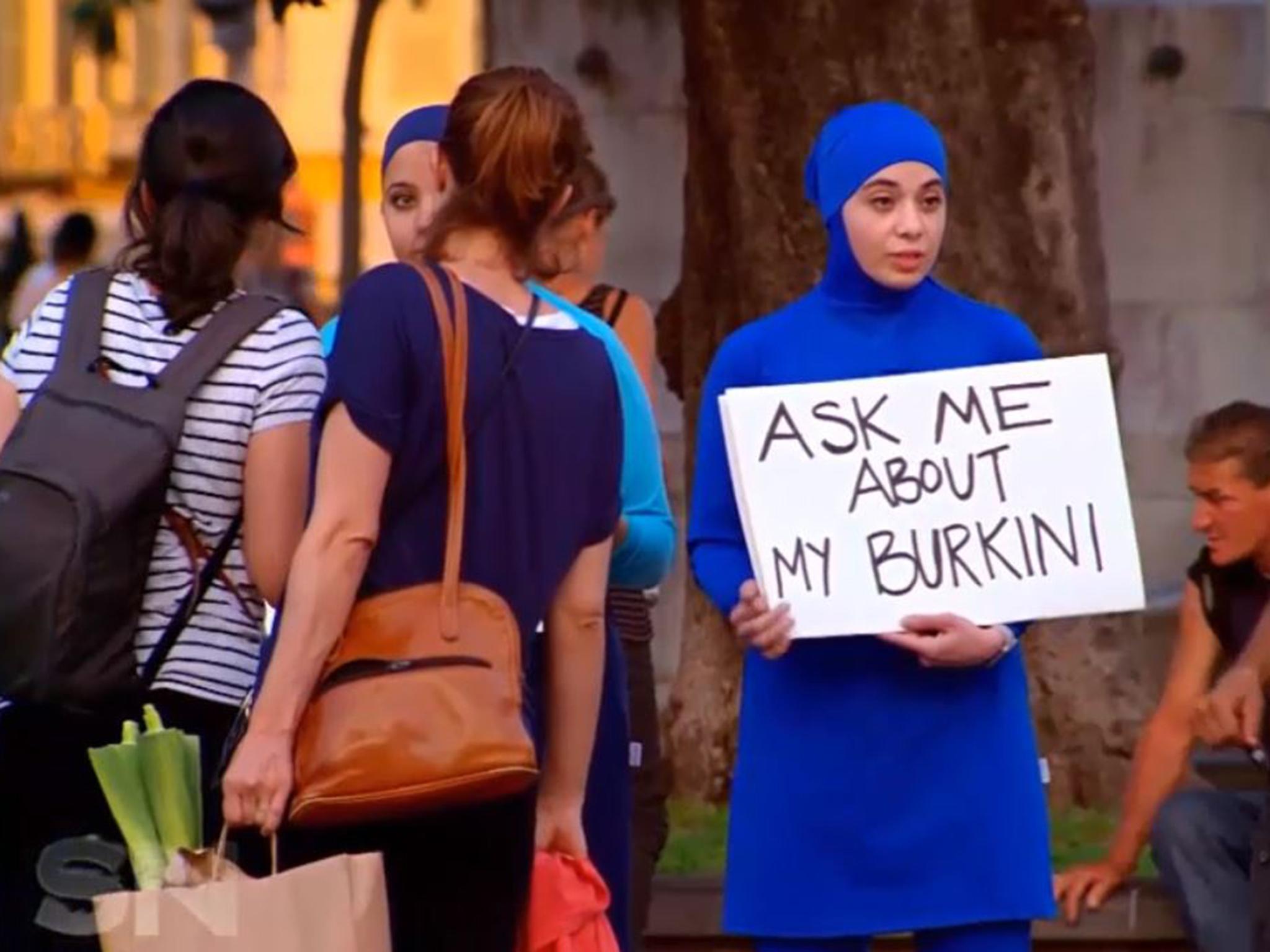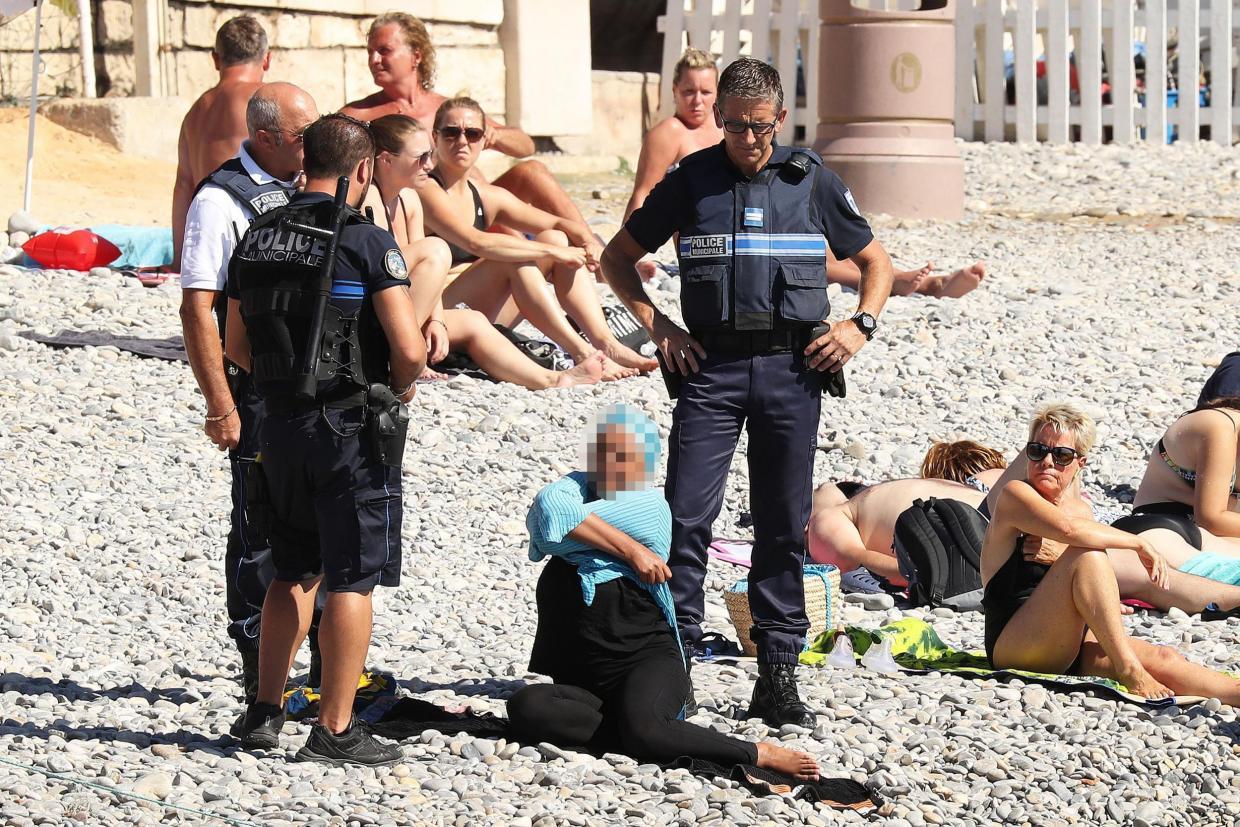Muslim woman wears burkini on French beach as tolerance experiment and immediately gets abuse
Zeynab Alshelh says she and her mother were accosted by locals threatening to call the police despite the ban having already been overturned

Your support helps us to tell the story
From reproductive rights to climate change to Big Tech, The Independent is on the ground when the story is developing. Whether it's investigating the financials of Elon Musk's pro-Trump PAC or producing our latest documentary, 'The A Word', which shines a light on the American women fighting for reproductive rights, we know how important it is to parse out the facts from the messaging.
At such a critical moment in US history, we need reporters on the ground. Your donation allows us to keep sending journalists to speak to both sides of the story.
The Independent is trusted by Americans across the entire political spectrum. And unlike many other quality news outlets, we choose not to lock Americans out of our reporting and analysis with paywalls. We believe quality journalism should be available to everyone, paid for by those who can afford it.
Your support makes all the difference.A Muslim woman has reportedly been verbally abused on a beach in the France Riviera for wearing a burkini – despite a ban on the modesty swimwear being overturned.
Zeynab Alshelh, a medical student from Sydney, decided to fly to the country after she became angry at 30 French towns banning the modesty swimwear in the wake of several terror attacks.
The bans were overturned in most French cities after a court in Paris ruled they infringed on the rights of women to wear what they liked.
In an attempt to show solidarity with the women, one of whom was photographed being forced to undress by armed police, the 23-year-old and her mother wore their burkinis on a beach in the French Riviera while on holiday with her father.
But Ms Alshelh said they were threatened by their fellow beachgoers who said they would call the police if the family didn’t leave, while others made rude hand gestures, Australian news channel Seven reported.
Ms Alshelh said: “They weren't happy with us being there, even though it was on the beach that the burkini ban was overturned but the locals were not happy,
“There shouldn't be a connection between terrorism and the burkini and there shouldn't be a connection between terrorism and Islam altogether”.
Following that reaction, Ms Alshelh teamed up with a local Muslim woman to go back to the beach in burkinis to raise awareness about them.

The pair, who held up signs saying “What do you think of my burkini?” and “Ask me about my burkini?”, encourage people to ask questions and reduce the stigma around them.
But again, she said, they were told to leave.
She said: “I just wanted to see it for myself, I wanted to see what is going on here – why is this happening – I want to speak to the girls who have gone through this kind of stuff”.
France has suffered from mounting racial tension following a string of Islamist terror attacks which have hit the country in the past 18 months.
An attack in Nice where a lorry was driven into a Bastille Day crowd killing 84 people in July prompted the first ban by a mayor in Cannes and other tourist towns and cities soon followed.
In Corsica, a judge ruled that the town of Sisco’s burkini ban was still valid despite the higher court’s ruling because the swimsuit’s presence had disrupted public order.
The ban was introduced on 16 August after a public brawl allegedly broke out between three Moroccan residents and other locals after people had been taking photographs of a woman in the burkini.
Subscribe to Independent Premium to bookmark this article
Want to bookmark your favourite articles and stories to read or reference later? Start your Independent Premium subscription today.
Join our commenting forum
Join thought-provoking conversations, follow other Independent readers and see their replies
Comments